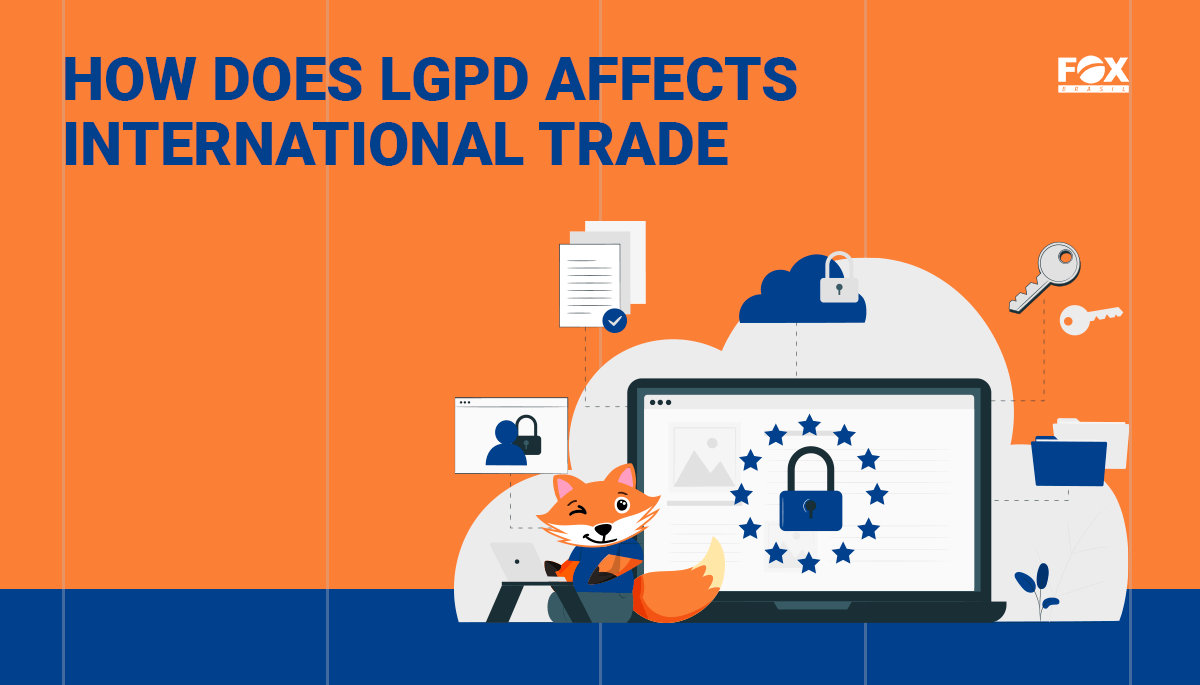What is LGPD and how does it affect International Trade?

Business
In the era of technology, data is as valuable as a literal treasure. Especially if we are talking about personal information, that is essential to ongoing business processes as well as for marketing and narrowing down potential business relationships.
In International Trade, personal data is everywhere, present in every single stage of export and import: freight forwarding, customs clearance, all of that involves a great number of documents that possesses a great amount of personal information, and LGPD was created with the objective of keeping these operations as safe as possible for all parties involved.
What is LGPD?
LGPD stands for Legislação Brasileira de Proteção de Dados Pessoais, and it is a law created in 2018 in order to provide better protection of personal information in Brazil. Europe (GDPR) was the head start of this initiative that spread through the world after the continent started to demand a data protection policy from all the countries that they had commercial relations with.
This law enforces rules that companies must follow while collecting, storing and using their client’s personal data. These rules, however, were not warmly welcomed by the companies in the market, since they require changes to procedures and sectors, and these changes demand money.
In fact, the need of financial resources on behalf of the companies was one of the reasons why this law, even though created in 2018, is set to start truly invigorating in 2021, since rules as complex as these take time to be implemented in the market.
How does LGPD affect International Commerce?
Even when we are talking about a standard delivery process, where a regular consumer orders something online and receives the product at their house, both the store where the product was bought and the delivery company or person possesses sensitive personal information about the consumer, and, the truth is, this process would not work without it.
During exportation and importation, documents and personal information about the stakeholders are a mandatory part of the process, and laws such as LGPD ensures that this data is taken care of properly and that, if something like misuse or leaking happens to it, the responsible parties will be held accountable.
Since everything is stored digitally rather than physically nowadays, buyers and sellers in the trading market must adapt to the security measures imposed by laws like LGPD to make international businesses safer for everyone involved.